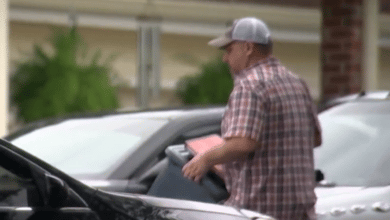Rugby giving young Venezuelan offenders a second chance

By Sarai Coscojuela
Caracas/El Consejo, May 11 (EFE).- In 2003, Jose Arrieta tried to rob Hacienda Santa Teresa, Venezuela’s most important rum distillery. Today, and now a rugby coach, he is preparing a team sponsored by the firm to compete starting May 20 in the Costa Blanca Rugby Sevens in Spain.
After a rainy afternoon, Arrieta arrives at the Hacienda, located in the city of El Consejo in Aragua state, to begin practice in the sport that gave him a second chance, recalling that his life before rugby was “a little chaotic.”
“(My life) was a little chaotic … I was a boy who got into trouble. I think that if it wasn’t for the (Alcatraz) Project, I wouldn’t be alive right now,” he told EFE.
Arrieta is part of Project Alcatraz, a program that was started by Alberto Vollmer, the owner of Santa Teresa, in 2003 after the break-in by the current coach and his old criminal gang to rob the company.
“Alberto captured one of my companions and offered him two options: either he’d send him to jail or (my friend) would work for him for six months without any pay,” Arrieta said.
After the young man took the latter option, the company launched a process to train wayward kids about values, set up sessions with psychologists, and – besides the required work – the firm also introduced them to rugby and got the team into the national league, and now they will compete in Spain.
A portion of the team is made up of former criminal gang members, and others – who have not committed any crimes – are young men who, due to their life circumstances, are at risk of falling in with violent groups.
Among the latter is Wilkinson – Arrieta’s son – who began to play rugby when he was just 8 years old thanks to a friend of his father, who took boys from the community to the training practices.
Wilkinson told EFE that his mentor thought that if boys saw others “playing with pistols they would want to play with pistols, but if they saw them playing (sports) they’d want to play (sports), too.”
In his judgment, the competition in Spain will unite more than the team, which at the beginning went through processes of “reconciliation” by incorporating members of “enemy” criminal gangs.
“More than being something special, there’s a weight, a very big feeling among us … This is going to unite us even more as a team, as people and as a family,” said the young man, who added that it is “very nice” to be able to play along with his father because it’s something “that’s priceless.”
The preparation of the team that will travel to Spain began at Hacienda Santa Teresa, where there’s a playing field, and later the team moved its training sessions to another location where they continued with their training, their psychological sessions and even took classes on bartending, oratory and working with the social networks so that the players can keep a record of their life journeys.
Besides playing rugby, the members of Project Alcatraz have learned the techniques of manufacturing rum and how to prepare cocktails, and that’s the case for Anther Herrera, a former member of the latest gang recruited by Santa Teresa in 2020.
Herrera, who went from committing robberies to being an “ambassador” for the brand, admits that before he got involved with the project he didn’t have any confidence in it.
“We didn’t think about that … We thought they wanted to gather us together and turn us over to the government and that was something we were very scared about,” he told EFE.
After two years of negotiations, however, the group decided to become part of Project Alcatraz and to participate in the rugby team, where they saw that the sport’s values included “respect, transparency, humility, teamwork, discipline and confidence.”
“For me, being on a rugby team is something really big, something very valuable, because since I was a kid I also really liked soccer … Here, you’re working on a team and you’re changing your lifestyle,” he said.
Santa Teresa business director Bernardo Lopez said that over the past 19 years the company has managed to recruit the members of 11 criminal bands in Aragua state, almost all of them from the municipality of Revenga, where the company has been headquartered since 1796.
“We’re absolutely aware that there can be changes in a human being, that they can have second chances … and the truth is that we’ve thought that nobody is irredeemable, that it’s simply a lack of opportunities” that’s gotten them into their delinquent situations, he told EFE.





